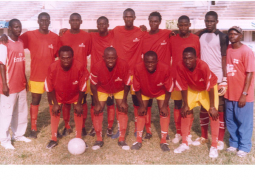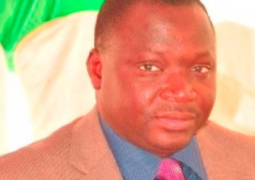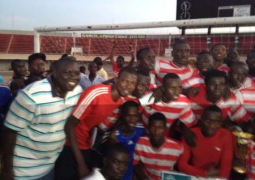Kwame Nkrumah. Class Struggle in Africa,
PANAF Books, 94 pages
While in exile the founding president of Ghana Kwame Nkrumah Osageyfo wrote prolifically on most of his ideas on African liberation, neo-colonialism and especially, class struggle in Africa. In this book which came out in 1970, four years after he was removed from power by the army, Nkrumah contends that although Africa has many different kinds of political, social and economic conditions, it is possible to discern clear class structures such as workers, peasants, bourgeoisies just as Karl Marx had delineated a century before.
In this book, Nkrumah tackles various issues linked to class struggle in Africa, starting with the origin of class in Africa (p.13); the nature and characteristic of Class in Africa (p.23) and he describes the various classes such as intellectuals (p.36) the proletariat (p.64) and the peasantry (p.75)
He explains that in pre-colonial Africa, ‘all land and means of production belonged to the community. There was people ownership. Labour was the need and habit of all’. However, as the Europeans infiltrated and established themselves, they appropriated much of the land and turned it into private ownership so that a new class of landowners, mostly European settlers as in Zimbabwe and Namibia, emerged. A tiny African clique of landowners also emerged as in Kenya. These two group of landowners conspired to negate Africans’ desire and struggle to independence led by workers and peasants’ nationalist parties like his CPP in Ghana (p.16).
One major contribution of the late Osageyfo to the development of African politics and independence which is usually lost to his admirers and critics alike is his vast opus on political and freedom theory. From his seminal and highly inspiring autobiography, Ghana, published in 1957, to his last work published in Conakry during exile, Nkrumah never ceased to feed African minds with brilliant theories on liberation, socialism and national independence. He was the veritable African president philosopher. This book is a veritable treasure trouve of liberation techniques which future freedom fighters such as Cabral of the PAIGC and Neto of the Angolan MPLA used to good effect during their struggle against Portuguese oppression during the 1970s.
Nkrumah’s book gives an important historical context to the class oppression mounted by colonial ruler on Africa. This book is therefore, a vital read for all students of African politics, especially independence politics. It is highly recommended.
Available at Timbooktoo.
Tel: 4494345




